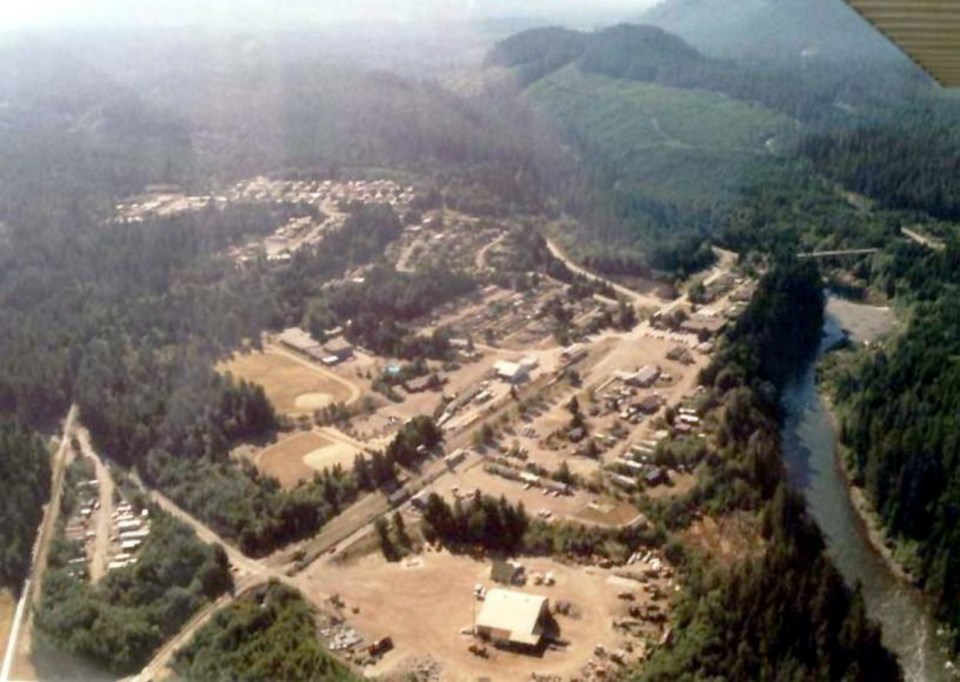 A grand total of seven students — including three siblings and two of their cousins — enrolled in Woss Lake Elementary last fall.
A grand total of seven students — including three siblings and two of their cousins — enrolled in Woss Lake Elementary last fall.
Today, the cousins are gone, so it’s down to five.
Next fall’s projected number: just three kids rattling around in a school that was built to hold 265 back in 1961.
So, it was no surprise Monday when the Vancouver Island North school board found itself looking at pulling the plug on Woss at the end of June.
In truth, the school has been on borrowed time for years. It has been like watching a good dog grow old, knowing that one day you’re going to have to take Shep for that last car ride to the vet’s.
Still, it’s bad news for Woss, a tiny outpost of maybe 250 souls that sits smack dab in the middle of the loneliest stretch of highway on Vancouver Island, 67 kilometres south of Port McNeill and 74 north of Sayward.
School closings have become a fact of life in B.C., where the teachers’ union has documented 240 of them since 2002.
Up-Island, more are pending. The Nanaimo-Ladysmith district, which has closed a dozen schools since 2004, will shut Woodlands Secondary and Woodbank Primary at the end of June.
Campbell River will close Oyster River and Discovery Passage schools. Courtenay’s Ecole Puntledge Park came within a whisker of getting the chop.
It really hurts when it’s the only school in town, though. When they close in places such as Echo Bay, Youbou, Union Bay and Quatsino, the communities risk becoming barren Children Of Men towns — all seniors centres, no playgrounds.
“In the future, how do you attract young families?” asks Dave Rushton, Woss’ regional district director. “The school is key to our community.”
Retirees are trickling into the village, lured by $140,000 houses and an uncitified lifestyle, but that’s not enough, says Rushton, himself retired after 50 years of logging. “To me, a community without kids is not really a community. There’s nothing like hearing kids laugh and play.”
He pauses, then says: “We’re looking for some good breeders.” (Good luck with that: in 2011 B.C.’s fertility rate — the average number of children per woman — was just 1.42, the lowest in Canada.)
It wasn’t always so. Woss had maybe 200 kids in the 1970s, many of them busing in from a couple of logging camps that no longer exist. The school went to Grade 10 then. Prior to the paving of the highway in the late 1970s, the Grade 11 and 12 kids would stay at the dorms at the Port McNeill high school from Monday to Friday, coming home on weekends.
Ulla Lutz was among them. She went to school in Woss before that. So did her husband. So did their kids. Ulla is also the very last teacher at Woss Lake Elementary, having taught there for 31 years.
Teaching in such a place — basically an old-fashioned, one-room K-7 school plunked inside a larger, empty building — has been special, she says.
“You get a lot closer to your students because you see them year after year,” she says. “When something happens to one of the kids, it’s like something happens to one of your own.”
With only a handful of students, there’s no soccer team or basketball team or, well, any team at all. No sneaking out of the Christmas concert early if you’re a parent — though, as Lutz points out, “ours were usually short and sweet.”
The community is tight. A garden in front of the school was planted in memory of two former staff members who died of cancer. The school is also famous for its support for the Tour de Rock, whose (usually) rain-soaked cyclists stop there to gulp down hot soup in the middle of a 140-kilometre day.
Last fall, those seven kids raised close to $1,000 in memory of Saanich police sergeant Mike Lawless, who was a local favourite as he came through as part of the Cops For Cancer support team each September. Lawless succumbed to cancer in January 2015 at age 44. Lutz vows that the Tour de Rock connection will continue even without the school.
Overall, the north Island school district’s enrolment has held fairly steady for the past few years, levelling out after a steep drop that matched the decline of the resource industries and the exodus of working families to the oil patch.
Woss is in a tough spot, though. Rushton said it didn’t help in January when Western Forest Products switched from a Monday-to-Friday work week to a staggered model that left kids and their parents with different days off. “Everybody’s lifestyle has been turned upside down.”
As for Woss’s elementary school children, they now face a 67-kilometre bus ride to Port McNeill, boarding at 7:30 a.m. and getting home at 4:30 p.m. (Compare that to the current furor in Osoyoos, where closing the high school will mean a 20-kilometre ride to Oliver.)
At least, that will be the alternative if there are any kids left to bus.



